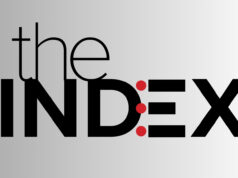As the pandemic stretches on, the negative effects on the mental health of Americans are undeniable. But what about those who were living with behavioral health conditions before the Covid-19 outbreak? How are they faring — and is the health care system doing enough to support them?
An analysis of health care claims during the height of the coronavirus outbreak in the New York City metro area suggests concerning trends in behavioral health care utilization among Americans who need that care most.
Utilization declines
Specifically, we found a 41.2% overall decline in the use of behavioral health care services among New York-area members with behavioral health conditions when coronavirus cases were peaking.
The analysis compared behavioral health care visits (both in-person and telehealth) for the March-May 2020 period to the same period in 2019 among individuals with one of the following diagnoses: bipolar disorder/manic, major depressive disorder, schizophrenia and personality disorders.
Although 67% of those diagnosed with one of the above conditions accessed behavioral health services during the 2019 period, only 43% did so during the same period in 2020. Telehealth utilization, which was low in 2019, skyrocketed by nearly 2,000% — but it wasn’t enough to compensate for the decline.
While we can’t say definitively what those lost visits mean at the individual or population level, the numbers certainly sound an alarm. They are particularly concerning when you consider those with severe and persistent mental illness, including bipolar and schizophrenia, who tend to require close coordination with health care professionals to manage their condition.
Leveraging available resources
Hopefully, most of these individuals have since found their way back to care without experiencing a worsening of their condition or an acute incident. Further analysis in the months ahead will tell us more. For now, the information suggests families, community leaders and health care professionals nationwide should pay close attention to the health and wellbeing of those with behavioral health concerns to make sure they are getting the care and support they need as cases continue to grow in much of the country.
Telehealth remains an effective tool for reaching those who are unable or concerned about visiting their health care provider in person. Employers, health plans and patients’ individual physicians must continue to communicate about how to access remote or virtual behavioral health care services. They must continue to share information about accessing prescription refills so no one has to go without needed medication.
Telehealth may also prove to be particularly effective in treating behavioral health concerns well-beyond Covid-19. Accessing care virtually may reduce the perceived stigma associated with behavioral health services. Telehealth also enables patients to have access to more behavioral health specialists, a field that is relatively small in size, than what is available to them within commuting distance.
During these trying and socially distant times, nurse case management programs are another practical resource that employers can explore to support their employees with mental health care needs. The best of these outreach programs connect individuals with highly trained registered nurses who will listen to their needs and challenges, discuss treatment options and community resources, guide members to providers, assist with making appointments, and provide ongoing encouragement and support to help maintain health and wellness during the pandemic and beyond.
Families, too, should check in on their loved ones with behavioral health concerns if they aren’t already doing so. The National Alliance on Mental Illness has a helpful online Covid-19 Resource and Information Guide to support individuals and families dealing with mental illness during the pandemic.
Looking ahead
To say this is a challenging time for Americans is an understatement. The ongoing disruption to daily life, jobs and schools — coupled with the underlying fear of illness — are enough to test the fortitude of the strongest among us. Health care organizations like ours must continue to study the trends in pandemic-related data to identify areas of need and transparently share that information across stakeholder groups so we can collectively learn and work together to determine the right solutions. As our society continues to grapple with the coronavirus, it’s incumbent upon all of us to help support those who need it most.
Picture: Benjavisa, Getty Images








